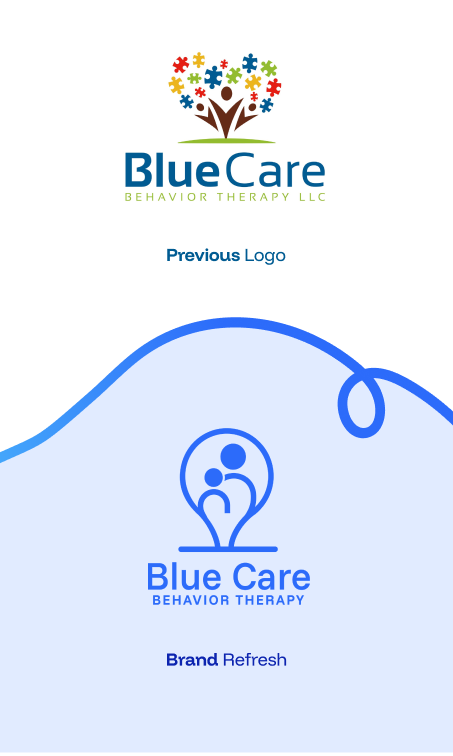Applied Behavior Analysis Insurance Coverage Explained

- July 9, 2025
ABA therapy is one of the most effective interventions for individuals with autism. But let’s be honest, it can be expensive. That’s why understanding applied behavior analysis insurance coverage matters so much. The good news? Thanks to federal and state laws, many insurance plans are now required to cover ABA therapy. Over 200 million people now have access to ABA therapy through their insurance.
The tricky part? The rules still vary depending on your plan, your provider, and your state.
Let’s walk through what you need to know to make sense of your coverage and how to get the most out of it.
How Much Does ABA Therapy Cost Without Insurance?
If you’re paying out of pocket, ABA therapy can be costly, and the expense of treatment is a barrier to receiving services.
According to Autism Parenting Magazine, the average cost of ABA therapy in the U.S. with a board-certified therapist is around $120 per hour. Now multiply that by the number of hours your child might need per week, and the totals add up quickly:
- 10 hours/week = $1,200 per week, or $62,400 per year
- 20 hours/week = $2,400 per week, or $124,800 per year
- 40 hours/week = $4,800 per week, or $249,600 per year
Without applied behavior analysis insurance coverage, the cost of consistent, medically necessary therapy could be unaffordable for many. Of course, most families don’t pay those amounts out of pocket, but even with insurance, it’s important to understand what’s covered to avoid unexpected bills.
Is ABA therapy covered by insurance? This Is What The Law Requires
The federal mandate is clear: health insurance must provide applied behavior analysis insurance coverage for mental health care, treatment for autism spectrum disorder. This requirement exists in all 50 states, representing a major victory for families seeking autism services.
However, while coverage is universal, the specifics vary dramatically. Autism insurance coverage by state and plan varies in terms of regulations governing age limits, service caps, pre-authorization requirements, and treatment duration. Think of it as a baseline requirement that each insurer interprets differently.
The key is understanding that autism insurance exists everywhere, but the details matter enormously when it comes to accessing care.
Insurance Coverage for ABA Services in Florida
Florida families benefit from strong protections under the Steven A. Geller Autism Coverage Act. This legislation requires certain insurance plans to cover autism screening and treatment, including ABA therapy.
The law mandates coverage for:
- Autism screening and diagnosis
- ABA therapy
- Speech, occupational, and physical therapy when prescribed by a treating physician
- Annual cap: $36,000
- Lifetime cap: $200,000
Florida Medicaid provides even more comprehensive coverage for ABA therapy. Children under 21 receive coverage when treatment is medically necessary. Medicaid benefits include:
- Up to 40 hours per week of ABA therapy
- Initial assessments and ongoing evaluations
- Parent training sessions
- Regular reassessments every 6-12 months
- No co-pays or coinsurance for eligible families
Parent participation is strongly encouraged and must be documented in treatment plans. This involvement helps ensure therapy goals align with family needs and daily routines.
At Blue Care Behavior Therapy, we can help you understand your specific coverage and start your child’s ABA journey.
Is Autism Testing Covered by Insurance in Florida?
In Florida, most insurance plans, including Medicaid, cover autism testing when it’s medically necessary and prescribed by a qualified healthcare provider. Under the Steven A. Geller Autism Coverage Act, insurance companies are required to cover well-baby and well-child screenings for diagnosing autism spectrum disorders.
Medicaid also covers a Comprehensive Diagnostic Evaluation (CDE) for children under 21 when there’s a concern about autism. The CDE must be led by a licensed provider and may include behavioral reports, developmental assessments, and standardized tools like the Vineland-3 and BASC-3.
While private insurance plans may have different requirements, most will cover diagnostic evaluations if done by an in-network provider and accompanied by a referral or pre-authorization. Always check your plan to confirm coverage and any documentation needed.
Steps to Navigate Your ABA Therapy Insurance Coverage
1. Understand Your State’s Mandates for Autism Insurance
While a federal mandate exists, each state can set its own requirements for what autism-related services must be covered by insurance. This means your access to ABA therapy may vary based on where you live. Understanding autism insurance coverage by state can help you avoid surprises and prepare the right documentation.
2. Know Your Insurance Provider
While plan types determine what rules apply, insurance providers can significantly impact how benefits are administered. Many large insurers offer aba therapy insurance coverage. Insurance providers that commonly cover ABA therapy include:
- Medicaid (Sunshine Health, Humana Healthy Horizons, Simply Healthcare)
- Florida Blue
- Aetna
- Cigna
- Blue Cross Blue Shield
- UnitedHealthcare
Even if your insurer appears on this list, it’s essential to check your specific policy details. Coverage limits and requirements can vary dramatically from plan to plan, even within the same insurance company.
3. Determine Whether Your Plan is Fully Insured or Self-Funded
Understanding your plan type is crucial because it determines which laws apply to your coverage.
- Fully insured plans are regulated by state law and typically include ABA coverage as required by state mandates. These plans are common among small businesses and individual purchasers.
- Self-funded plans are regulated federally and may not include autism-related benefits unless the employer specifically chooses to add them. Large employers often use self-funded plans to control costs and customize benefits.
If you’re unsure about your plan type, consult the Autism Speaks Health Benefits Guide or contact your HR department for clarification.
4. Know What Your Plan Covers
Before starting therapy, understand these critical coverage details:
- Number of allowed sessions per week, month, or year
- Pre-authorization and referral requirements
- Age or diagnostic restrictions
- In-network provider requirements
- Coverage of reassessments and parent training
- Co-pays, deductibles, and out-of-pocket costs
- Whether autism testing is covered by insurance
5. Additional Steps for Maximum Coverage
- Confirm your provider is in-network. Out-of-network services can result in significantly higher costs or complete denial of coverage.
- Keep detailed documentation. Track all approvals, usage, and communication with your insurer. This paper trail becomes invaluable if you need to appeal decisions.
- Stay on top of required reassessments. Most insurers require updated evaluations every 6-12 months to maintain coverage. Missing these deadlines can interrupt your child’s therapy.
What to Do If Insurance Denies Coverage for ABA Therapy Services
Insurance denials are common, but they’re not necessarily final. Many families successfully overturn initial denials with the right approach.
- Read the denial letter carefully. Understanding the specific reason for denial helps you craft an effective response.
- Collect necessary documentation. Gather your child’s diagnosis, treatment plan, assessments, and any supporting medical records.
- File a formal appeal or request a peer-to-peer review. Many insurers offer the option for your doctor to speak directly with their medical reviewer.
- Work with your ABA provider for guidance. Experienced providers understand insurance requirements and can help strengthen your appeal with clinical justification.
Remember, persistence often pays off. Many families receive approval after initially being denied.
Questions to Ask Your Insurance Provider
Before beginning ABA therapy, get clear answers to these essential questions:
- Is ABA therapy covered by insurance under my specific plan?
- How many hours or sessions are allowed per week or year?
- Are there age or diagnosis requirements?
- Is autism testing covered by insurance?
- Do I need a referral or prior authorization?
- Are there coverage caps (annually or lifetime)?
- What are the in-network requirements?
- Are parent training sessions included in coverage?
How Blue Care Behavior Therapy Can Help
Blue Care Behavior Therapy works directly with families to verify insurance benefits and navigate the approval process. Our experienced team understands the complexities of applied behavior analysis insurance and can guide you through every step.
We accept a wide range of insurance providers, including all major plans serving Florida families. (If you don’t see your insurance listed, please contact us.)

Moving Forward with Confidence
Understanding autism insurance coverage by state and your specific plan details puts you in control of your family’s ABA journey. While the insurance landscape can seem complicated, remember that coverage is legally required and available to your family.
The key is staying informed, asking the right questions, and working with experienced providers who understand the system. With proper preparation and support, you can secure the ABA therapy coverage your child needs to thrive.
Valuable links
Blue Care Behavior Therapy is more than just a provider. We’re your partner in navigating autism care. From insurance guidance to personalized ABA therapy, our team is here to support your child’s growth every step of the way.
CONTACT US
bluecaretherapy@gmail.com
(786) 599 – 4901 | (904) 662–7093






